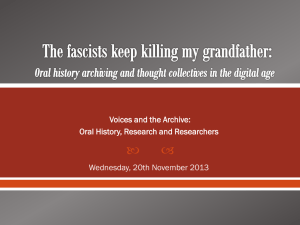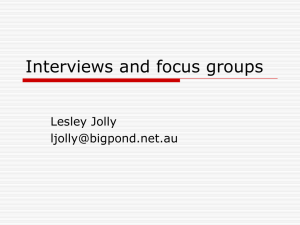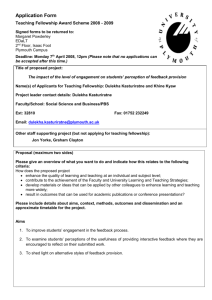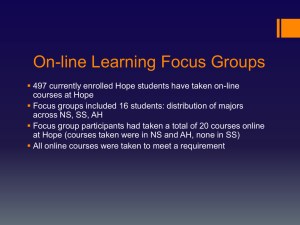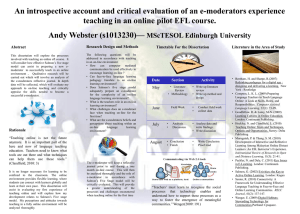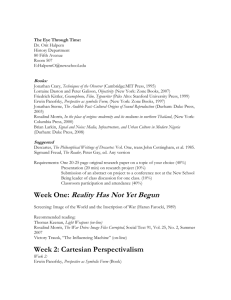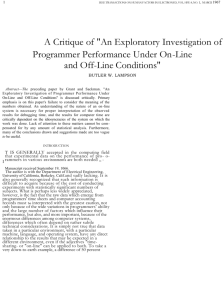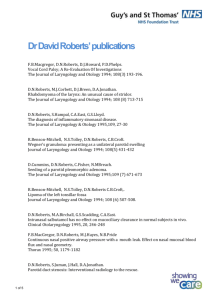Faculty of Health
advertisement
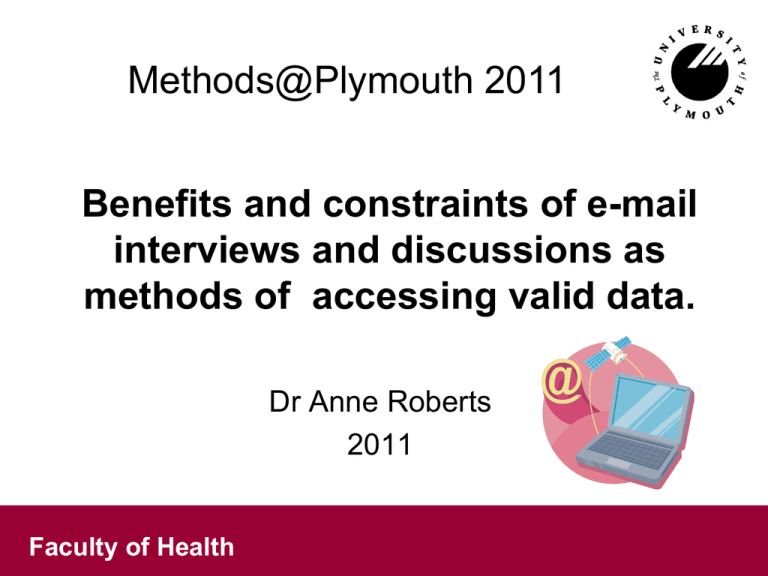
Methods@Plymouth 2011 Benefits and constraints of e-mail interviews and discussions as methods of accessing valid data. Dr Anne Roberts 2011 Faculty of Health Aims……. This paper will discuss the benefits and constraints of e-mail interviews and discussion groups as methods of accessing valid data, based on two recent small studies conducted at the University of Plymouth. Faculty of Health Using e-mail; and on-line discussions Email interviewsasynchronous, indepth,multiple e-mail exchanges, not viewed by others On-line discussionsasynchronous, multiple e-mail exchanges, viewed by others Faculty of Health Recent studies on which these reflections are based. Email interviews on defining occupation. 6 occupational therapists around the world Interpretative phenomenological analysis Faculty of Health On-line discussion as part of a practice scholar study. 12 participants in SW region Thematic analysis Using e-mail and on-line discussions Opportunities Not constrained to local populations Cost: time & travel Accessibility Convenience Iterative Pace..time to reflect Familiar environment Faculty of Health Using e-mail; and on-line discussion Challenges Authenticity Mediation Absence of non verbal communication, questions open to misinterpretation, lack of direct probing Access to internet Faculty of Health Ethical issues Trust Expectations (how much time, how many times they will be contacted) Consent Confidentiality Protection from harm Withdrawal Faculty of Health Issues Recruiting a sample Length of study (Long drawn out studies lead to frustration and drop-outs Hodgson 2004) depends on number of participants, number of questions, degree of commitment of participants and researcher/project timescale Send questions 1 at a time? Embedded in the e-mail message rather than attached (Dommeyer and Moriarty 2000) Delays in responding…how many reminders? Respond by dates. Authenticity (including offline interviews) Data quality comparable to face to face (Meho 2006) “reflectively dense accounts” p1291 Communication- body language, advantages for sensitive or “difficult” topics? Eliminates possible interviewer effects in asking the questions. Greater disclosure? Embellishment? Literacy? Empowering as in control (Meho 2006) Faculty of Health References Dommeyer C J and Moriarty E (2000) Comparing two forms of an e-mail survey: Embedded vs. attached. International Journal of Market Research 42 (1) 39-50 James N (2007) The use of e-mail interviewing as a qualitative method of inquiry in educational research. British Educational Research Journal 33 (6) 963-976 James N and Busher H (2007) Ethical issues in online educational research: protecting privacy, establishing authenticity in e-mail interviewing. International Journal of Research & Method in Education 30 (1) 101-113 Kraut R, Olson J, Banaji M, Bruckman A, Cohen J, Couper M (2004) Psychological research online: report of board of scientific affairs’ advisory group on the conduct of research on the Internet. American Psychologist 59(2) 105-117 Meho L I (2006.) E-mail interviewing in qualitative research: a methodological discussion. Journal of the American Society for Information Science and Technology. 57 (10) 1284-1295 Faculty of Health Any questions? Thank you for your attention. Contact: Dr Anne Roberts anne.roberts@plymouth.ac.uk 01752 851457 Faculty of Health
